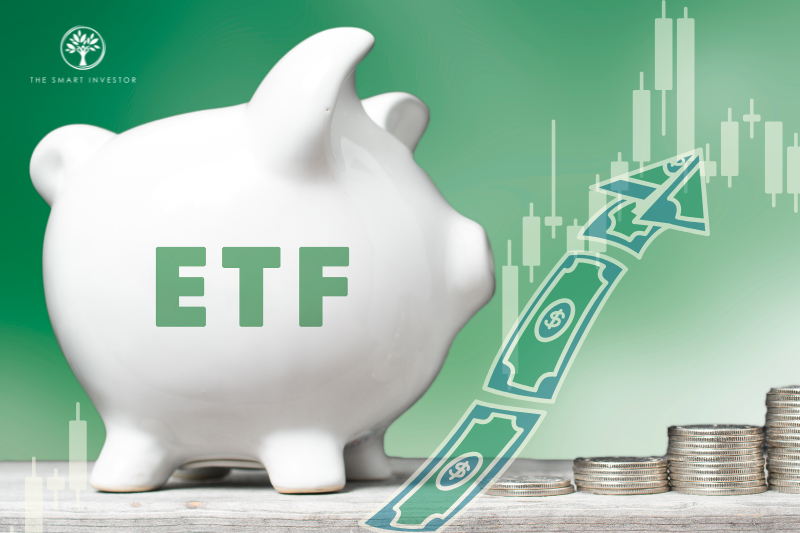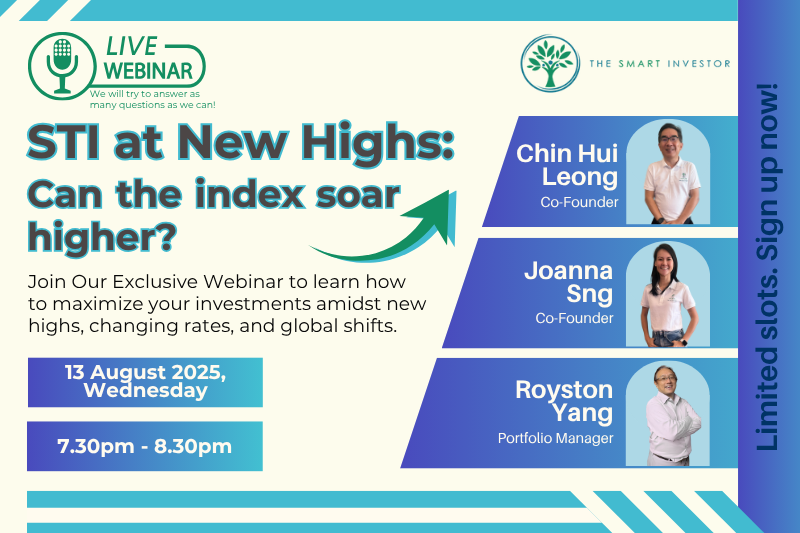If you have been looking into ETFs, you’re not alone.
Investor interest in Singapore REIT ETFs has been on the rise, with the sector attracting over S$300 million in net inflows in the past year.
Total assets under management have climbed 40% to reach a record S$1.2 billion by mid-2025.
Leading the pack is the Lion-Phillip S-REIT ETF (SGX: CLR), the first and largest of its kind, which now manages more than S$585 million, as of 30 July 2025, and continues to deliver an attractive yield of close to 6%.
But if you are thinking of buying the ETF, here are eight things that you should know:
- The index seeks to identify high-yielding S-REITs with strong competitive moats and exceptional financial health.
- Liion-Phillip S-REIT ETF is diversified across sectors, though it leans more heavily on Industrial REITs, which make up around 43% of the portfolio.
Retail REITs come next at a little over 19% and office REITs at 17%, as shown in the pie chart below.
- The ETF is Singapore’s first and largest ETF focusing on S-REITs. The REIT includes 21 constituents and is pure play on Singapore-listed REITs.
- As of the end of July 2025, its largest three holdings are Capitaland Ascendas REIT (SGX: A17U) at 10.1%, followed by Capitaland Integrated Commercial Trust REIT (SGX: C38U) with 9.8%, and Mapletree Logistics Trust (SGX: M44U) at a little over 9.7%.
- When it comes to assets under management (AUM), Lion-Phillip S-REIT ETF’s asset base comes in at nearly S$585 million (as of July 2025), drawfing its peer CSOP iEdge S-REIT ETF (SGX: SRU), which has a net asset value of around S$100 million.
A larger fund size usually means the ETF is more liquid.
Said another way, it’s easier to buy or sell units quickly without affecting the price much. This factor makes it simpler for investors to execute trades at or close to the market price.
- As of 30 June 2025, Lion-Phillip S-REIT ETF’s one-year total returns are ahead of its pure play competitor CSOP iEdge S-REIT ETF by around 0.7%.
However Lion-Phillip S-REIT ETF did not perform as well as another two globally diversified REITs, namely NikkoAM-STC FTSE EPRA Nareit AXJ REIT ETF (SGX: CFA) and UOB APAC Green REIT (SGX: GRN).
| ETF Name | Total Return Over 1 Year % | Location of Underlying Assets | Dividend Yield % | Total Expense Ratio % |
| Lion-Phillip S-REIT ETF | 9.36% | Singapore | 5.76 | 0.6 |
| CSOP iEdge S-REIT Leaders Index S-REIT ETF | 8.70% | Singapore | 5.98 | 0.6 |
| NikkoAM-STC FTSE EPRA Nareit AXJ REIT ETF | 11.48% | Singapore, Hong Kong India, Malaysia, South Korea, Thailand, and Philippines | 5.76 | 0.55 |
| UOB APAC Green REIT | 12.36% | Japan, Australia, Hong Kong, Singapore | 4.10 | 0.83 |
- Amongst all the REITs ETF, Lion-Phillip S-REIT ETF has one of the lowest expense ratios at 0.6%, making it a cost effective and passive ETF.
- Lastly, its dividend is relatively high at 5.76%. With the cost of borrowing coming down due to rate cuts, it’s likely we see dividend stabilise or increase slightly if revenue is unchanged.
Get Smart: Is the ETF Right for You?
The Lion-Phillip S-REIT ETF is built for investors who want simple, broad exposure to Singapore’s REIT market without the hassle of picking individual counters.
By holding a diversified basket of 21 local REITs, the ETF offers a convenient way to capture the sector’s recovery while enjoying a relatively high dividend yield of close to 6.0%.
If you’re comfortable with your investment consisting wholly of Singapore-listed REITs, where it’s also easier to keep an eye on developments on the ground, the ETF provides a cost-effective, passive option.
With one of the lowest expense ratios in the space (0.6%) and a solid track record against its direct competitor, it can serve as a steady, income-generating addition to a long-term portfolio.
What are the stock secrets to Singapore’s “quiet millionaires?” Chances are, you’ll find at least one of their favourites in this free report. Download it now and see how these stocks could power your portfolio!
Follow us on Facebook, Instagram and Telegram for the latest investing news and analyses!
Disclosure: Evan does not own any of the ETFs mentioned.






